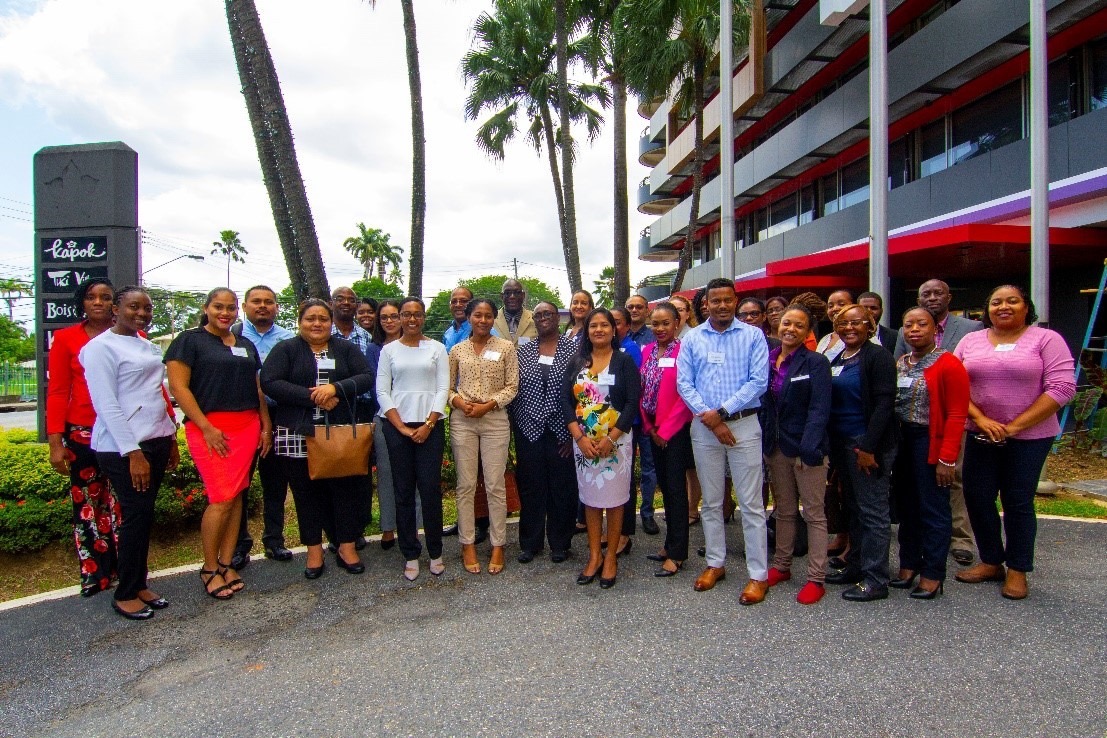The Caribbean Public Health Agency (CARPHA) introduced a new initiative to help CARPHA Member States develop national systems to protect their communities and healthcare workers from outbreaks.
Recognizing the need for the Caribbean to strengthen Regional Health Security to protect the health of our resident and visitor populations, the initiative is geared at improving regulations and practices of laboratories in accordance with international best practices.
During a Regional Workshop on the Development of National Frameworks for Pathogen Biosafety and Biosecurity from 26 -28th June 2019, held in Trinidad and Tobago, CARPHA hosted twenty-four (24) participants from five (5) Member States; Belize, Guyana, Jamaica, The Bahamas and Trinidad and Tobago. Representatives from the health, veterinary sciences, agriculture, policy, trade, and security sectors participated.
According to Ms. Sacha Wallace-Sankarsingh, Biorisk Manager CARPHA, “Although some countries have parts of a national mechanism to monitor the spread of diseases, there is urgent need for oversight through updated national laboratory policies within a framework to prevent laboratories from being the cause of accidental or deliberate release of materials which can cause harm to their communities and the environment.”
Laboratories form part of systems for the monitoring and timely detection of diseases e.g. dengue, influenza, measles and agricultural pests which can quickly become outbreaks, causing unnecessary burden on the health system and the economy. They also provide services and information that are used in more than 80% of doctors’ decisions for care and treatment of patients. As part of its mandate, CARPHA has trained over 500 regional laboratory professionals to use standardized operational practices to ensure safe and secure handling of samples from humans and animals.
This workshop was held in collaboration with the Inter-American Development Bank (IDB) and the Caribbean Regional Office for the Centres for Disease Control and Prevention (CDC), with support from Mr. O’Neil Hamilton, CARICOM UNSCR 1540 Coordinator; Ms. Basia Schreuders, Office Pathogen Security, Public Health Agency of Canada and Ms. Giselle Guevara, Laboratory Strengthening Team Lead, Caribbean Regional Office, CDC
CARPHA will continue to assist Member States using a multisectoral approach to maintain the momentum towards the establishment of sustainable systems which satisfy national and international obligations.




